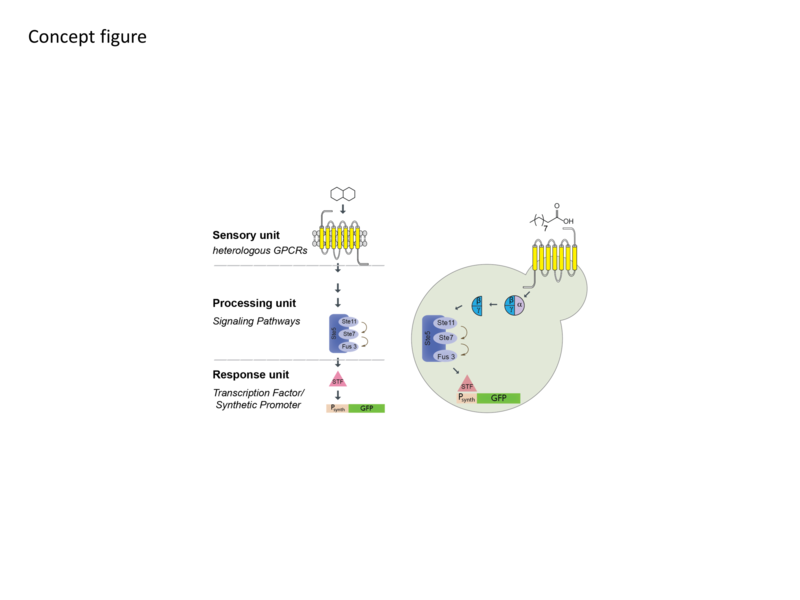Georgia Tech inventors have engineered two G-protein coupled receptors (GCPR) biosensors for the detection of medium-chain fatty acids, which are immediate precursors to diesel. The biosensors show an 8-10 fold increase in signal after activation in the presence of fatty acids. By introducing an orthogonal response unit, the signal substantially improved to 12-fold. The GCPRs have an affinity for a wide range of chemicals, which means new biosensors can be rapidly assembled by simply swapping the GPCR sensory unit.
- Innovative – first medium-chain fatty acid biosensor
- Cost Saving – enables more rapid production
- Diverse applications – applications that require different dynamic and linear ranges
- Healthcare - microbe-based bio-pharmaceuticals
- Energy production
- Agriculture
- Chemical Production - smart cells to detect chemicals in the environment
The microbial production of chemicals can provide a sustainable, cost-effective, and green alternative to the synthesis of fuels and chemicals from petroleum. However, screening chemical-producing microbes remains one of the most time consuming steps in metabolic engineering due to a reliance on low-throughput technologies. Most value-added chemicals are not colorimetric, and necessitate sensors for screening to reach higher rates of production.

